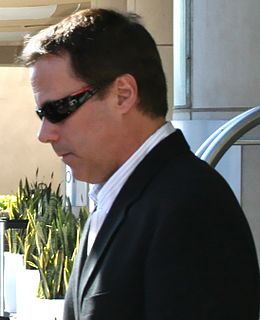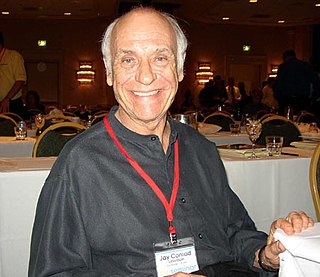A Quote by John Kao
Every day, there are 770 million Cokes consumed, which means that there are 770 million purchasing decisions made each day regarding the product. To support those decisions, the company must constantly reinvest in its marketing links to its customers. As a result, a high level of creativity must go into everything the company does, from cause-related campaigns - Coca-Cola and its sponsorship of the Olympic Village in Atlanta, for example - to new catch phrases, commercials, marketing slogans, advertising campaigns and promotional tie-ins.
Quote Topics
Advertising
Atlanta
Campaigns
Catch
Cause
Coca-Cola
Commercials
Company
Constantly
Consumed
Creativity
Customers
Day
Decisions
Decisions Made
Does
Each
Each Day
Every
Every Day
Everything
Example
For Example
Go
High
High Level
Level
Links
Made
Marketing
Means
Million
Must
New
Olympic
Phrases
Product
Purchasing
Regarding
Reinvest
Related
Result
Slogans
Sponsorship
Support
Those
Tie
Village
Which
Related Quotes
The traditional model for a company like Coca-Cola is to hire one big advertising agency and essentially outsource all of its creativity in that area. But Coca-Cola does not do it that way. It knows how to manage creative people and creative teams and it has been quite adept at building a network that includes the Creative Artists Agency in Hollywood, which is a talent agency.
When I die and go to hell, the devil is going to make me the marketing director for a cola company. I’ll be in charge of trying to sell a product that no one needs, is identical to its competition, and can’t be sold on its merits. I’d be competing head-on in the cola wars, on price, distribution, advertising, and promotion, which would indeed be hell for me. Remember, I’m the kid who couldn’t play competitive games. I’d much rather design and sell products so good and unique that they have no competition.
Traditional sales and marketing involves increasing market shares, which means selling as much of your product as you can to as many customers as possible. One-to-one marketing involves driving for a share of customer, which means ensuring that each individual customer who buys your product buys more product, buys only your brand, and is happy using your product instead of another to solve his problem. The true, current value of any one customer is a function of the customer's future purchases, across all the product lines, brands, and services offered by you.
I would say, as an entrepreneur everything you do - every action you take in product development, in marketing, every conversation you have, everything you do - is an experiment. If you can conceptualize your work not as building features, not as launching campaigns, but as running experiments, you can get radically more done with less effort.
I was making commercials. That's how I learned the craft. That was the marketing part of it: directing commercial for TV. It wasn't the most common thing to become a filmmaker in Greece. I started by saying I was interested in marketing and have a proper job in advertising and commercials. Basically, I studied film to learn how to do marketing, and commercials. As I studied film I learned I'd be interested in making films instead of commercials.
If there is any one skill that every professional must learn, it is how to brand himself or herself in the marketplace. A brand provides certainty to customers and lets them know that what they`re getting is the best. People don`t like to make decisions. Once we decide, for example, the kind of toothpaste we prefer, rarely do we change. We have to make so many decisions every day in our lives that most of us are overwhelmed.
More brands are waking up to their social responsibility and doing good work through cause marketing campaigns. Yet too many still go about it the wrong way. I mean 'wrong' in two senses. Firstly, they are marketing ineffectively, and secondly, as a consequence their positive social impact is not maximized.
































